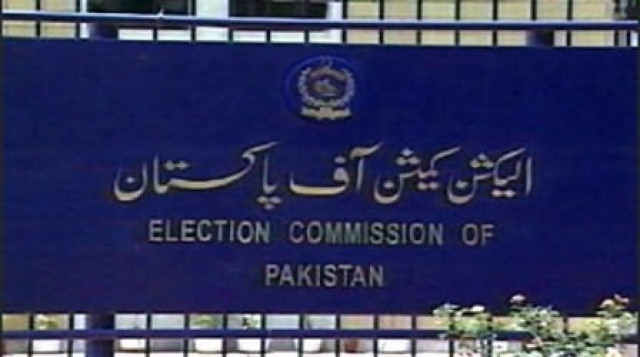ECP suspends 209 parliamentarians over non-disclosure of assets
Majority of K-P MPAs suspended are from Pakistan Tehreek-e-Insaf

ECP suspends 209 parliamentarians over non-disclosure of assets
The ECP has sent lists of the members to the respective speakers of the house, asking them to stop the listed members from working.
The parliamentarians suspended by ECP include 40 members of the Lower House of Parliament, while two suspended members belong to the Senate.
Among those who have not submitted details of their assets include Pakistan Tehreek-e-Insaf (PTI) MNA from Karachi Dr Arif Alvi and former federal minister Ghulam Rabbani Khar.
The biggest provincial assembly of the country in terms of seats, Punjab Assembly, also leads in the number of MPAs who have yet to disclose their assets with 98 MPAs listed.
In Khyber-Pakhtunkhwa (K-P), 32 members of assembly have not disclosed their assets so far. Those who have not submitted details of their assets include Minister for Minerals Ziaullah Afridi, former K-P health minister Shaukatullah Yousafzai. Jamaat-e-Islami chief Siarajul Haq is also among those who have not declared their assets.
Of the Sindh and Balochistan assembly, the ECP has listed 28 and nine members respectively who have yet to submit their assets.
Under the law, parliamentarians are required to submit details of their assets, that of their spouse and children, to the ECP by September 30.
Introduced in 2002 by the then military ruler General Pervez Musharraf the law is flouted by politicians at will.
According to the Representation of the People Act, 1976, section 42A states; “Every member shall, on a form prescribed under clause (f) of sub-section (2) of Section 12, submit a Statements of Assets & Liabilities of his own, his spouse and dependents annually to the Commission by the thirtieth day of September each year.
(2) The Statements of Assets and Liabilities submitted under sub-section (1) shall be published in the official Gazette and copies thereof may be obtained on payment of prescribed fee.
(3) The Commission shall, by the fifteenth day of October each year, notify the names of the members who fail to file Statements of Assets & Liabilities within the period specified in sub-section (1) and by an order, direct that such member shall cease to function till such statement is submitted.
(4) Where a member submits the Statements of Assets and Liabilities under sub-section (1) which is found to be false in material particulars, he may be proceeded against under Section 82 for committing the offence of corrupts practice”.
Loopholes in law
Apparently a good law which should hold lawmakers accountable each year, contains several flaws. It has failed to conduct any meaningful accountability which was basic spirit of the legislation.
Despite being termed mandatory, consequences for failing to comply with the law carries no major punitive measure.
Section three of the law says the member shall cease to perform his functions; a vague provision without specifying which functions it cannot perform. While September 30 is listed as the last date to file statements but another 15 days (October 15) was given as grace period after which a member is stopped from working. However, no one has ever been suspended for violating this law.
There is no clarity in the law if a member is a minister or holds some other important portfolio, she/he cannot officiate with that office. As a normal practice over the years, on media pressure ECP issues names of those who do not file asset details within the specified timeframe and a moral pressure is built. But those who submit their statements months after the deadline, the commission immediately issues a notification restoring them.
Under section four of the law, a false statement can lead member into serious trouble-action under corrupt practices, which means disqualification and imprisonment. But, the country’s premier electoral body has no mechanism to verify any statement nor any rules have ever been framed to implement the provision.
ECP, over the past 12 years, has functioned more or less as a post office, compiling the statements and publishing the same in a printed form without verification.
Proposals to make provisions meaningful
ECP officials told The Express Tribune that they have proposed that the parliament make several amendments in the law to make it meaningful.
Under these proposals, the ECP will be bound to publish names of those who fail to declare their assets on October 1, immediately after the expiry of the last date.
Under the proposed laws, by October 16, the violators may be suspended for a period of two months and their perks and privileges during that period withdrawn.
The officials said in their daft package of reforms that the commission should check the veracity of each statement and mechanism should be evolved where it can get services of any government department to probe.



















COMMENTS
Comments are moderated and generally will be posted if they are on-topic and not abusive.
For more information, please see our Comments FAQ